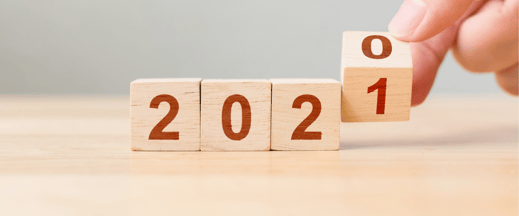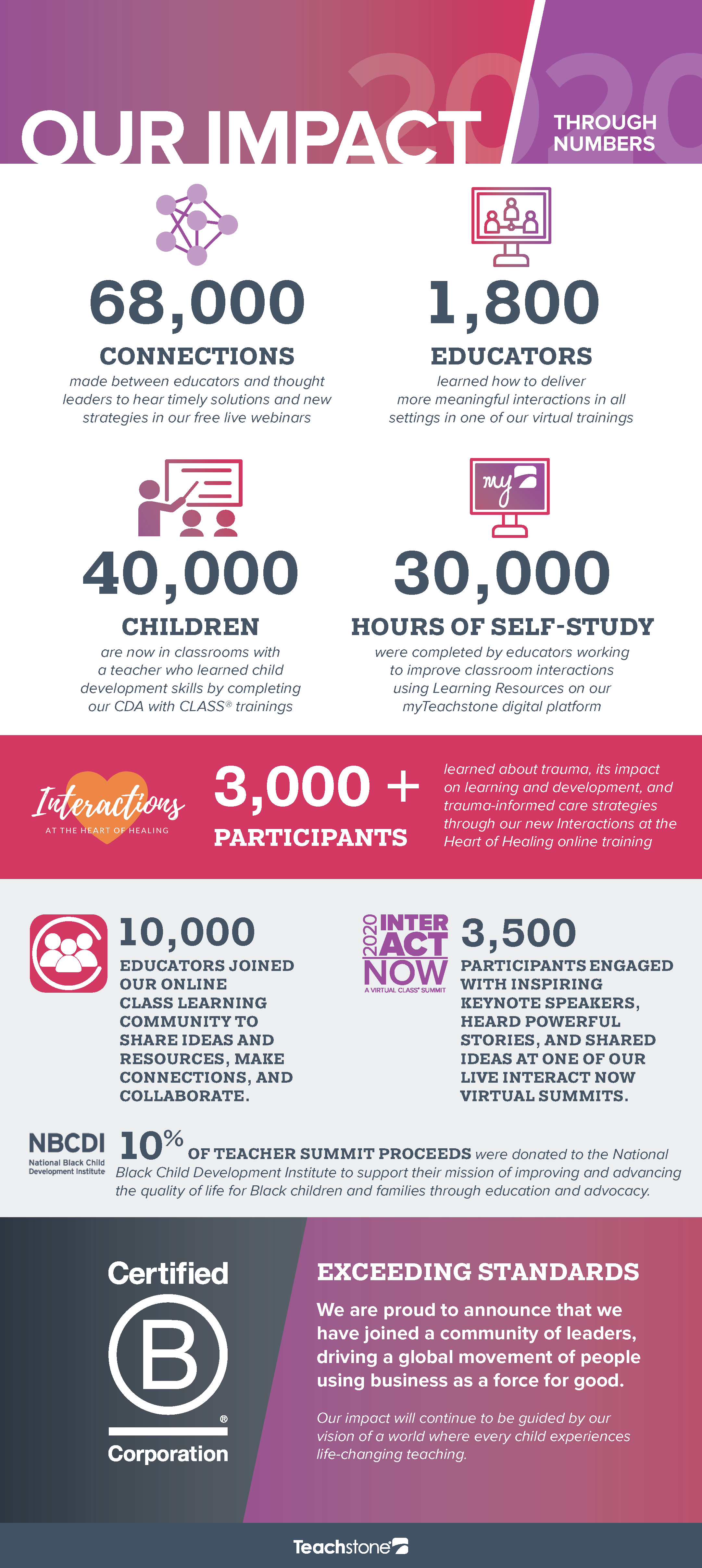
At Teachstone, we know that our work only succeeds if it is in partnership with you. So as we reflect on the significant challenges of 2020 and early 2021, we want to pause and celebrate the numerous ways in which you, and educators across this country, focused on what matters most – supporting students through meaningful interactions.
You used technology in new ways to learn about how to most effectively support students through virtual trainings. You engaged in webinars, online conferences, and studied independently to improve teaching skills. You pushed forward despite incredibly challenging circumstances, and we were honored to partner with you in those efforts.
From the start, Teachstone has had a singular goal - to ensure all children and adolescents had access to life-changing teaching. We knew the power that great teachers had to inspire, support, and guide students’ learning and development. In partnership with educators and policymakers across the country, we have made great progress toward this goal - but there is so much more to do.
As we enter 2021, we are laser-focused on fulfilling our mission by doing more to support the learning and developmental outcomes for every child.
In keeping with that work, we are excited to share that Teachstone has recently become a Certified B Corporation. This designation means that our organization meets the highest standards of verified social and environmental performance, public transparency, and legal accountability to balance profit and purpose. We’re excited by the opportunity to join leading businesses from across the country using business as a force for good.
We hope you will join us in 2021 as we continue to listen, respond, adapt, improve, and work with you towards a world where every child experiences life-changing teaching. Over the coming months we invite you to gather virtually for discussions and best practices around returning to in-person teaching, supporting students with special needs and dual language learners, responding to the increased gaps in early literacy and reading development and so much more. As always, we know that there is nothing more important for students’ educational experiences than the educators who work tirelessly to support them - and we are here to support you.
Stay tuned and thank you!

